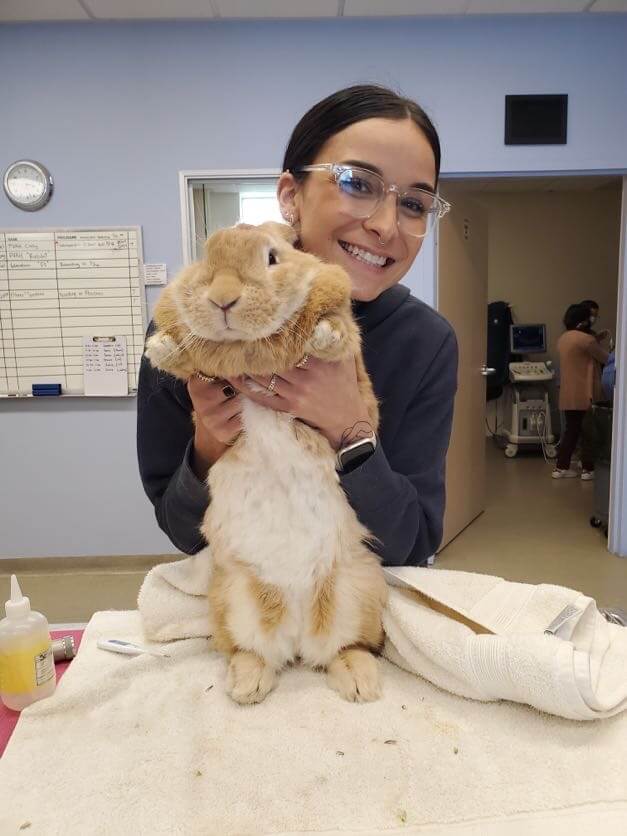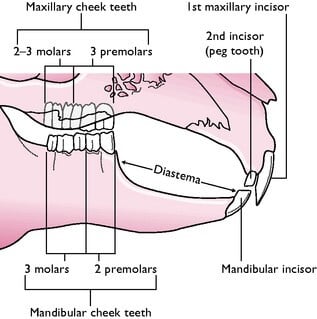What Every Small Mammal Owner Should Know About Dental Care
Most small mammals (Rabbits, Guinea Pigs, Hamsters) have open-rooted teeth that continuously grow throughout their lives. Eating fibrous foods, such as timothy hay, helps control overgrowth by wearing down the chewing surfaces. When teeth are properly aligned, the cheek teeth grind down in a somewhat circular motion.
While incisors are very easy to see, premolars & molars are difficult to examine without the specialized equipment we have here at the clinic. Complete physical exams should be done every 6-12 months to ensure teeth are being ground down and are not in danger of causing disease. Left untreated, a pet's mouth can become very painful and sometimes prevent the pet from eating. Overgrown teeth can result in ulcers of the cheek or even abscesses that can be life threatening.
Although dental disease is typically seen in mature pets, it can sometimes occur in young animals. This could be due to a number of different things based on the species. Causes of malocclusion include: Vitamin C deficiency (in guinea pigs), insufficient hay in the diet, and poor genetics. In rabbits, indiscriminate breeding has led to an increase in dental disease in very young rabbits. Minor genetic molar issues in rabbits can progress to more severe disease in older rabbits as teeth can become misaligned with age and improper wear.
In order to keep your pet healthy, try feeding large amounts of timothy hay, which helps wear down teeth. Unfortunately, even with best practices, this may be inadequate for some pets who are predisposed to dental problems. Malocclusion is often treated with dental trims under anesthesia. Unfortunately, because rabbit teeth grow continuously, dental procedures often need to be repeated every 4-16 weeks to keep the pet comfortable. Complications from dental disease can be prevented if problems are addressed early. If you suspect dental issues in your pet, please contact your veterinarian immediately.
Things to look out for: decreased appetite, decreased quantity/size of fecal pellets, audible teeth grinding, excessive drooling, and discharge from the eyes and nose. If your pet is exhibiting any of these symptoms, please seek veterinary care.
Schedule A Rabbit Dental Exam Today!



